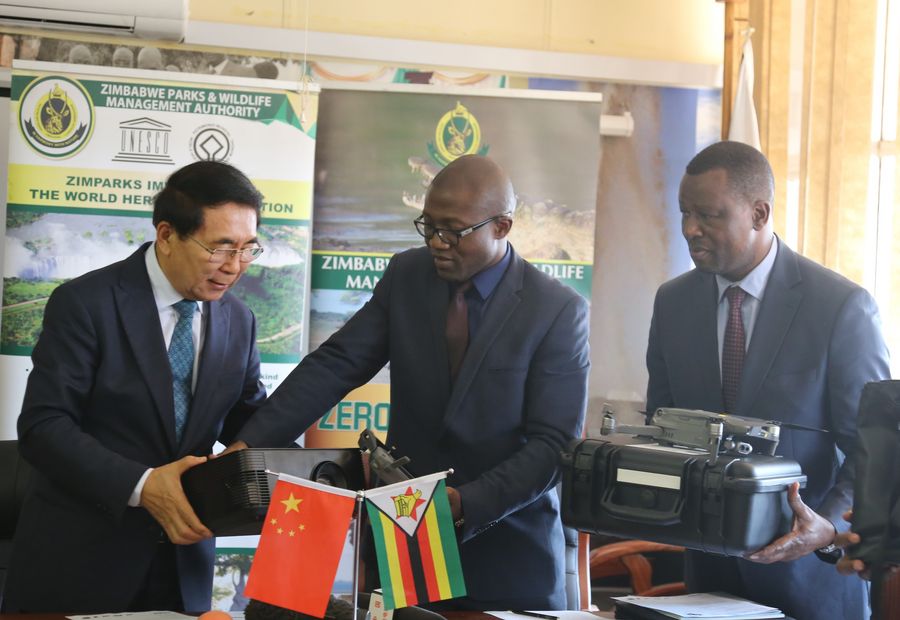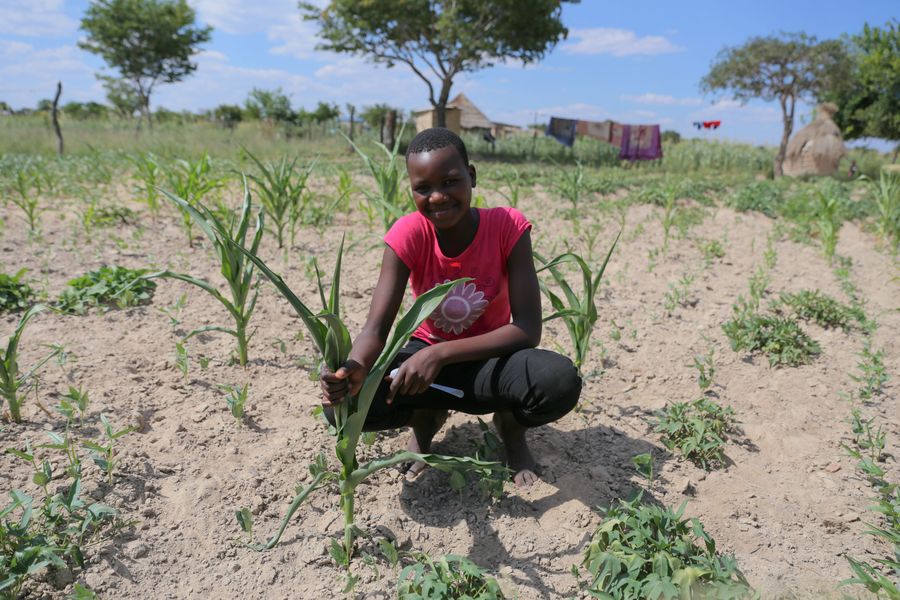
President of the Chinese Academy of Sciences (CAS) Bai Chunli (L) hands over the anti-poaching equipment to Zimbabwe's Acting Minister of Environment, Tourism and Hospitality Mangaliso Ndlovu (C) in Harare, Zimbabwe, Sept. 5, 2019. (Xinhua/Zhang Yuliang)
"We can actually see from the satellite how much area has been grown, and we can actually monitor the condition of the crop over the season."
HARARE, Sept. 6 (Xinhua) -- The Chinese Academy of Sciences (CAS) handed over an arable land distribution data product here on Thursday to Zimbabwe, as the two countries are strengthening scientific cooperation to boost food security in the southern African country.
The product, co-developed by the CAS, China's top scientific and technological institution, and the University of Zimbabwe (UZ), contains high-precision data which will help Zimbabwe address challenges of agriculture productivity and climate change.
Visiting President of the CAS Bai Chunli handed over the software disc to Zimbabwean Minister of Lands, Agriculture and Rural Resettlement Perence Shiri, saying the data product was developed following a general agreement the two sides signed in 2015.
"At the request of (the) UZ, the institute prepared a high-resolution satellite data on agriculture and I hope that it will be of great use to your agriculture development," Bai said.
Shiri lauded the CAS for the remote sensing technology it used in the development of the product.

A Zimbabwean girl holds on a maize crop grown on a dry land in rural Masvingo province, Zimbabwe, Feb. 14, 2016. (Xinhua/Xu Lingui)
"We have no doubt that the technology will go a long way in enhancing food security in the country. Currently the world is faced with the challenge of climate change hence we have to come up with appropriate responses," Shiri said.
UZ Vice Chancellor Paul Mapfumo stressed that the CAS has helped advance Zimbabwe's scientific knowledge and technological development, saying the country will benefit in terms of resource planning by being able to accurately monitor crop production and yield forecasts.
Emmanuel Mashonjowa, professor of agricultural meteorology at the UZ, said the data product provides land information with a high resolution of ten meters, three times what the country used to have.
"We can actually see from the satellite how much area has been grown, and we can actually monitor the condition of the crop over the season," he said.
"If you have climate change, (which) basically has impact on agriculture, we can actually see the impact of these changes, and we can plan accordingly," he explained.
Mashonjowa also said that the product can be a base for "lots of applications ... not only in agriculture but (also in) land use and disaster risk(s)."



